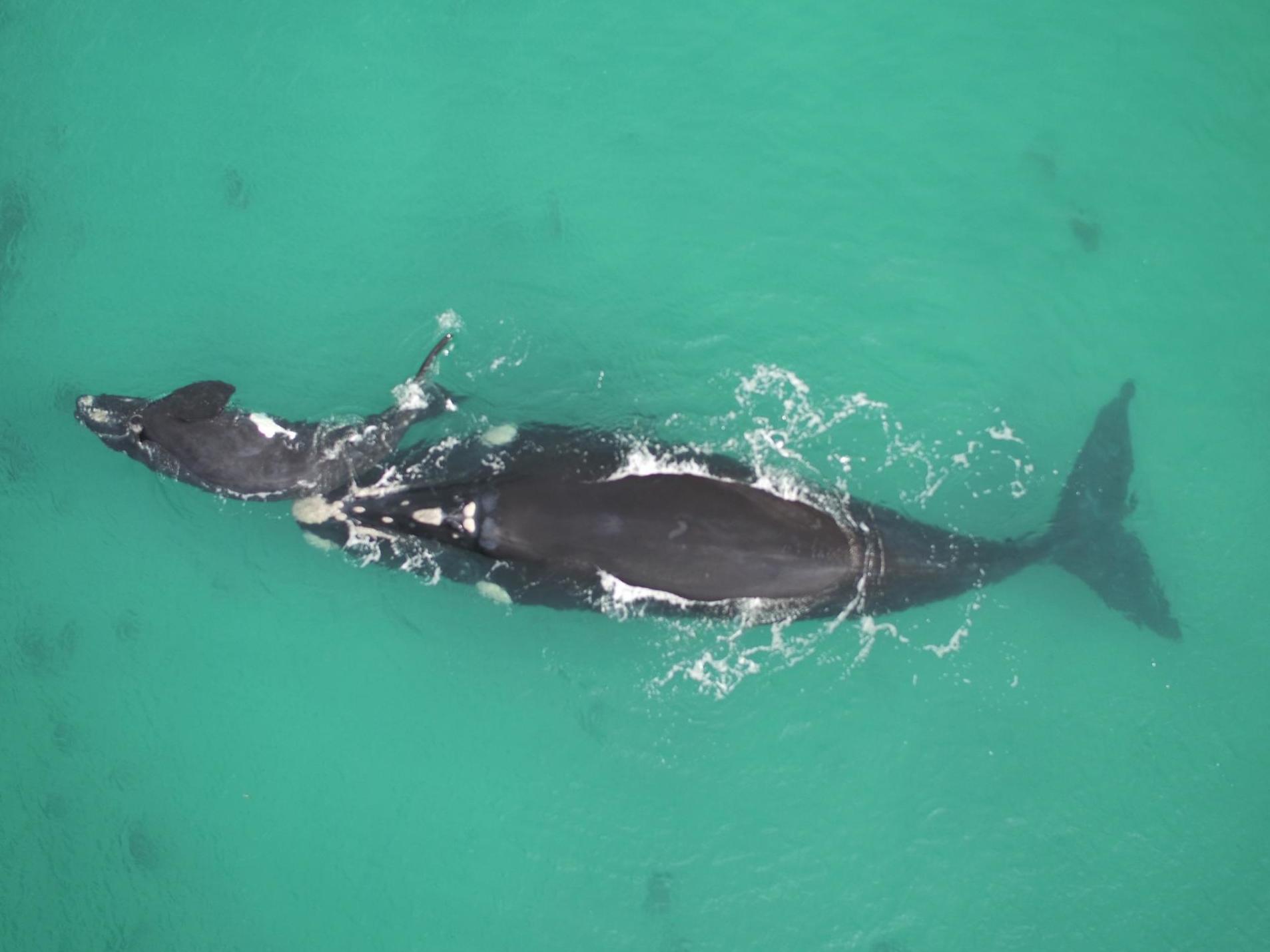Female southern right whales ‘whisper’ to offspring to avoid being heard
Pounding waves drown out quiet calls so killer whales can’t detect them

Your support helps us to tell the story
From reproductive rights to climate change to Big Tech, The Independent is on the ground when the story is developing. Whether it's investigating the financials of Elon Musk's pro-Trump PAC or producing our latest documentary, 'The A Word', which shines a light on the American women fighting for reproductive rights, we know how important it is to parse out the facts from the messaging.
At such a critical moment in US history, we need reporters on the ground. Your donation allows us to keep sending journalists to speak to both sides of the story.
The Independent is trusted by Americans across the entire political spectrum. And unlike many other quality news outlets, we choose not to lock Americans out of our reporting and analysis with paywalls. We believe quality journalism should be available to everyone, paid for by those who can afford it.
Your support makes all the difference.Female southern right whales “whisper” to their offspring to avoid being overhead by their killer whale cousins, according to new research.
Whale mothers and calves hide from predators by gravitating towards cloudy water near the coast. Here, they shelter in the noisy surf, stay in close proximity and effectively whisper – calling softly less than once per dive – to avoid attracting any unwanted attention, the study found.
When scientists analysed the volume of the animals’ calls, they were surprised by how quiet the moos and grunts were.
The pounding waves drowned out the calls within a few hundred metres, making it difficult for killer whales to eavesdrop on the soft conversations, according to the study published in the Journal of Experimental Biology.
“One of the initial challenges was getting to know the whales in our study area,” said Dr Mia Nielsen from Aarhus University in Denmark whose team travelled to Flinders Bay off the southern tip of Western Australia to the whales’ breeding ground.
Researchers stealthily approached the whales while they rested on the surface and attached sound recording tags which stayed on the mothers on average for seven hours but only stayed attached to the calf for 40 minutes.
Dr Nielsen said: “Southern right whales are very physical with each other, the calves spend a lot of time rubbing against the mother and rolling over her back, tail and rostrum.”
After tagging nine whales the team recorded 63 hours of conversations.
“It was difficult to assign the calls to either the calf or the mum, because they are so close to each other”, Dr Nielsen said.
Despite being five to eight metres long, southern right whale calves are vulnerable to attack. The study found that low-amplitude calling reduced the risk of “alerting eavesdropping killer whales of the location of the newborn calf, suggesting that this acoustic crypsis may have evolved as an anti-predator strategy”.
Right whales are so named because they were considered the “right whale” to hunt during the commercial whaling era of long ago.
They could often be captured close to the coast and provided a reliable source of whale oil, a precious commodity of the time.
Those characteristics led to the decimation of the population and it has struggled to rebuild since.
Join our commenting forum
Join thought-provoking conversations, follow other Independent readers and see their replies
Comments